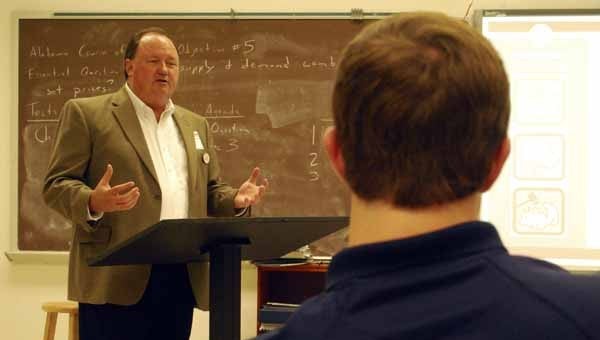Local bank develops program to teach high school seniors banking smarts
Published 11:00 pm Thursday, May 3, 2012
Talk of credit scores and IRAs are enough to make any adult’s head hurt, but one community business is doing its best to help graduating seniors prepare for the financial world ahead.
First National Bank representatives are visiting senior classes at all high schools in Pike County as part of a “Financial Literacy” program the company created.
“It’s not wise to keep your money in your mattress,” Troy Branch Manager Jerry Miller laughed as he addressed students in Derek Irons’ Government and Economics class at Charles Henderson High School.
Miller, along with FNB’s Jared McClendon, spoke with the students about the difference between checking and savings accounts, certificates of deposit, pros and cons of credit cards and credit scores.
“It was interesting to see how your credit score works,” said 17-year-old senior Micah Johnson. “I’ll probably work a little harder to develop my credit history because of today.”
Miller explained to the students how to build good credit by making small purchases and paying off credit card bills in full each month. He also warned the class not to ruin their credit by co-signing for friends.
Miller also told the students about up-and-coming technologies that will affect their banking practices in the future.
“Traditional banking is going out the window,” Miller said.
Miller told the group that, soon, they’d be able to download a smart phone app that would allow them to take a photo of a check and send it in as credit for a deposit. There will also be a way to store bank information on a phone to scan for speed pay as you would a credit card.
“I think that was one of the coolest things they talked about,” Johnson said. “An electronic wallet would make everything simple.”
There were about 14 students present for the 12:30 session by Miller and McClendon. About half said they had jobs, more than half had checking accounts and almost all had savings accounts.
“We hope to teach them while they are young,” Miller said. “Hopefully we can help them develop good habits early on.”



